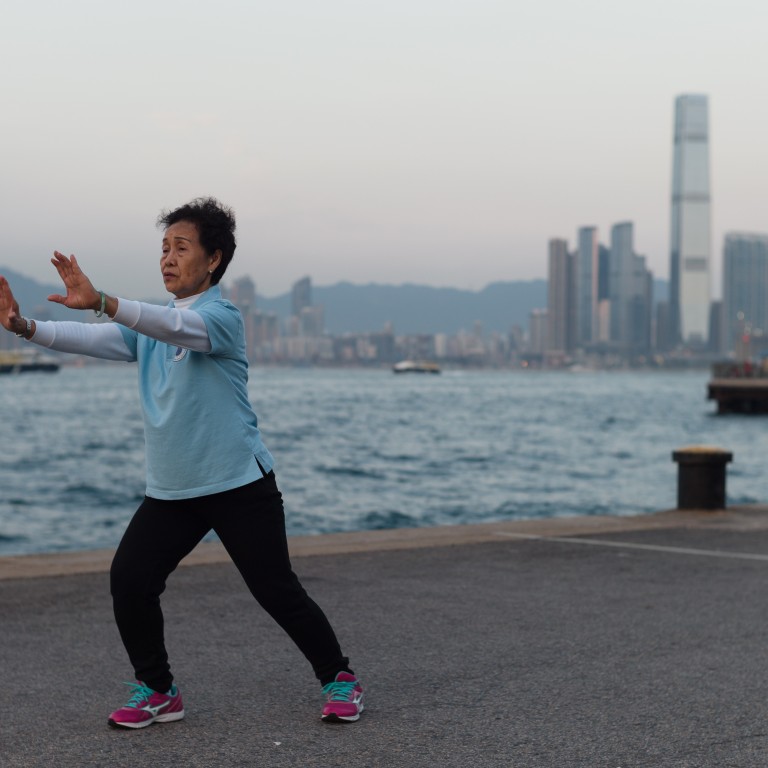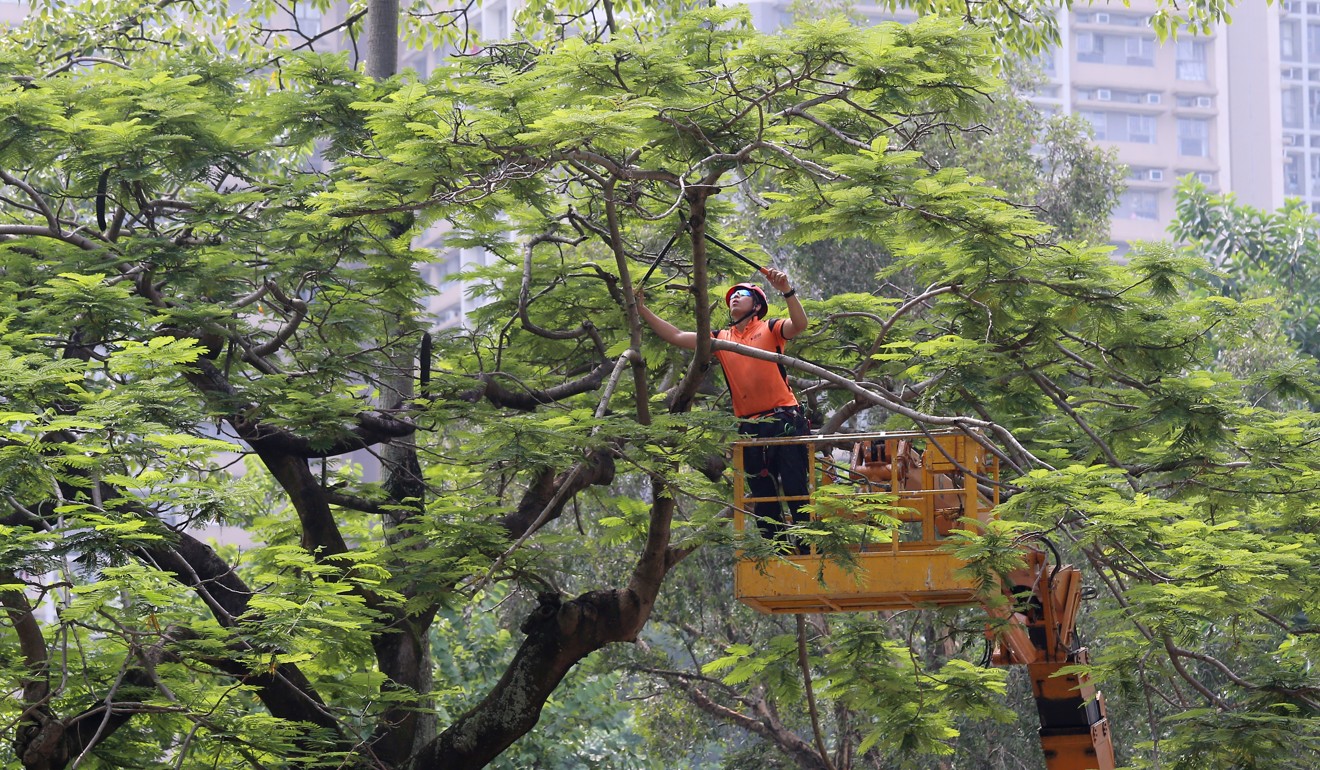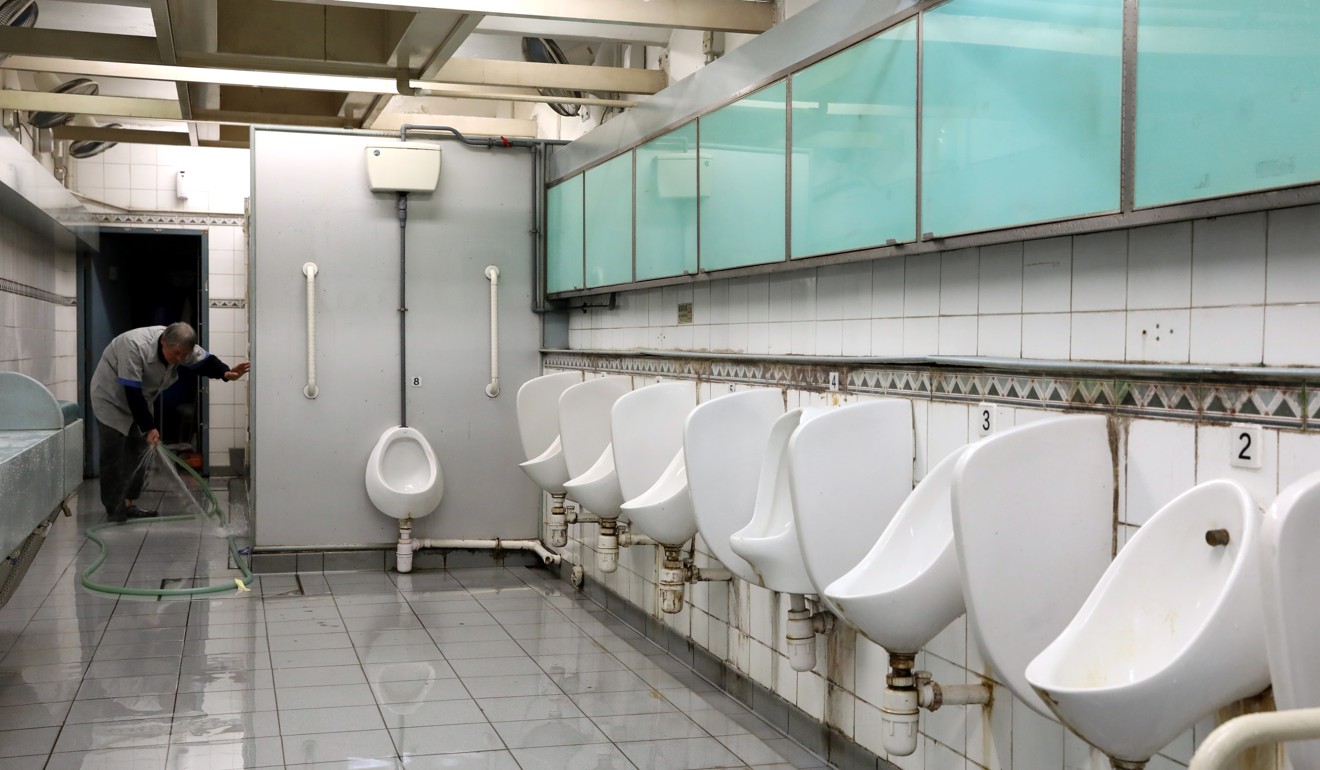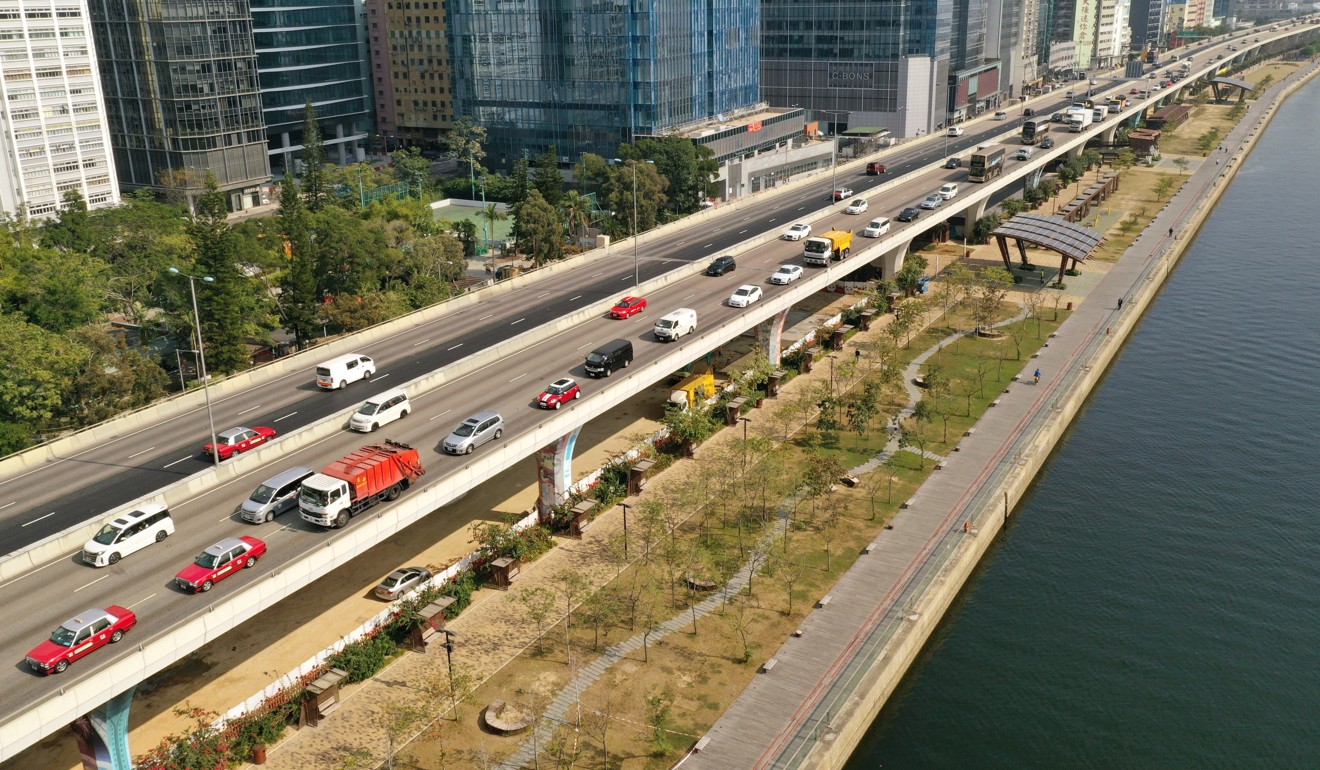
Greener, smarter (and cleaner) public toilets: budget spares no expense for a ‘more liveable’ city
- A total of HK$7.23 billion set aside to build a more enjoyable Hong Kong, including HK$600 million earmarked to promote art, culture and sports
- Another HK$6 billion allocated to extending waterfront promenades and HK$200 million is devoted to improving tree care
From a major public toilet makeover and longer waterfront promenades to better care for trees – the Hong Kong budget unveiled on Wednesday showed nothing is too trivial for public resources when it comes to building a liveable city.
The 2019-20 budget, presented by Financial Secretary Paul Chan Mo-po, set aside HK$7.23 billion (US$921 million) for building a more enjoyable, greener and smarter city, and earmarked HK$600 million to promote art, culture and sports.
“People work hard every day to enhance the quality of life,” Chan said in his speech. “We will also strive … to make Hong Kong a more ideal place for living … and serve people’s needs.”

And while President Xi Jinping launched a “toilet revolution” in a bid to shed mainland China’s reputation for dirty loos, maybe Hong Kong does not want the problem in the first place.
The makeover plan would cover one-third of the city’s public toilets.
A government source said officials would target lavatories in downtown areas with high usage rates and lacklustre maintenance. Some renovation projects included the renewal of ventilation systems and the installation of sensor-activated water taps and hand dryers.
There were no details about the targeted toilets’ locations.
Civic Party lawmaker Kwok Ka-ki, chairman of the legislature’s panel on food safety and environmental hygiene, recognised the government’s attention on this issue. But he urged the government to also improve long-term maintenance of the public lavatories.
Relief for foreigners amid China’s public toilets makeover … but there’s room to improve
He said the daily maintenance of the bathrooms was outsourced, meaning the lowest bidder often got the contracts. Kwok added that any problems detected in a public toilet would take two weeks to check and fix.
“Without consistent resources and effort in maintenance and daily operation, the money will not solve the problem,” Kwok said.
A string of injuries and deaths caused by fallen trees or branches over the past decade has made tree management a constant subject of public criticism for the government.

In response, Chan announced HK$200 million to set up an Urban Forestry Support Fund to encourage students to take studies in arboriculture and horticulture, and provide trainee programmes and internship opportunities.
The fund would help establish a registration system for tree management personnel, Chan said.
Veteran landscape architect Patrick Lau Hing-tat, a member of the government’s Urban Forestry Advisory Panel, said he welcomed the move because tree workers with insufficient qualifications had been a long-standing problem in the industry.
He said the government should raise the status of tree workers so they were treated as technicians with a clear career path, instead of menial workers.
News | Expats find lure of Hong Kong hard to resist despite what liveability surveys say
Even as resources were devoted to feel-good projects, citizens questioned the quality of local construction work after a series of scandals involving major infrastructure projects, such as the Sha Tin-Central rail link.

To address public concerns about this, Chan introduced measures to regain public trust in the construction industry, such as encouraging work site supervisors and contractors to use technology to collect real-time data on environment concerns and work safety.
The government would also rename its Project Cost Management Office as the Project Strategy and Governance Office. The newly named office would be in charge of implementing strategic initiatives and enhancing capabilities in cost surveillance and project governance.

